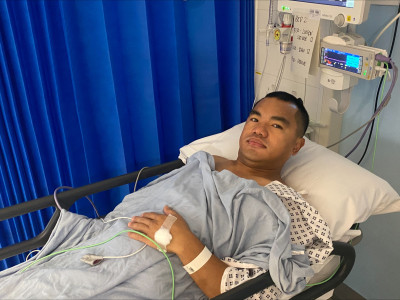Patients at Barnet Hospital (BH) are now benefitting
Cryoablation has recently been introduced at BH to treat patients with an irregular heartbeat and works by disabling heart cells that create it.
During the minimally invasive procedure a thin flexible tube is used to locate and freeze the heart tissue that causes the irregularity.
Atrial fibrillation is the most common heart rhythm disturbance, affecting around 1.4 million people in the UK. It can affect adults of any age, but it's more common in older people.
Daniel Keene, consultant cardiologist, is one of three doctors carrying out the procedure, along with Fakhar Khan and Ashish Mittal.
“We have spent almost two years trying to enhance our service here at the trust,” Daniel said.
“The prior route would mean that if we saw a patient that had atrial fibrillation and we thought an ablation would be an appropriate therapy, we would have to refer them to another hospital site. That would lead to waiting times of nine to twelve months which can mean further deterioration for the patient.”
Joseph Padawil (pictured), a carer living in Brent Cross, was one of the first patients to receive the procedure at BH.

“As someone who has worked as a carer and cared for clients in various hospitals in a private capacity, the level of service I received at the Barnet Hospital cardiac day ward was exceptional," he said.
“From the nursing staff to the cardiologist and anaesthesiologist, everyone was fantastic. They took the time to explain each step of the process multiple times, which really helped put me at ease and reassured me."
Cheryl Ralph, senior chief cardiac physiologist, said the introduction of the service also presents a great opportunity for staff development.
“Training for staff included classroom and simulation teaching, and an away day to a centre of excellence to observe how the procedure is carried out elsewhere,” she said. “Upskilling the team means we can attract, train and keep the best staff.”
“It’s a procedure that requires an anaesthetic team, imaging support and transoesophageal echocardiogram support and physiologists,” Daniel added. “We are taking a cautious approach initially and keeping patients overnight, but globally this case is moving towards day case provision which we will switch to when get more experience in this area as a team.
“This really catapults us to the forefront of being a cardiology centre in London offering a range of services.”
 Translate
Translate